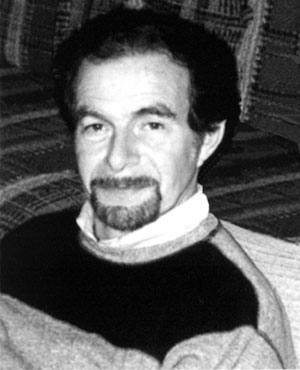It is that time of the year
again. For the
fourth time I am listing the best short mystery stories
of the year as determined by a distinguished panel consisting of me. In
fact, I would like to take a moment to thank me for all my hard work.
Sixteen
stories made the cut; one more than last year. None were from
websites, but that is probably because I looked at fewer of those in
2012, having plenty of paper stuff to occupy my mind.
The big winner was
Ellery Queen's Mystery Magazine, with seven hits.
Alfred Hitchcock's Mystery Magazine had four. No other market had more than one.
For
the first time ever one author has two best stories in the same year. They had oddly similar plots, showing that a talented chef can make two very
different dishes with the same ingredients. Five stories are by friends
of mine from the SleuthSayers/Criminal Brief mafia. You can read that
as blatant favoratism or an indication of the talent of that stable.
One
honoree is a first story. One is by a German (last year it was two,
oddly enough). Two have supernatural elements. Five are funny.
And by main character we have:
criminal 5
cop 4
victim's relative 3
amateur detective 2
victim 1
witness 1
spy 1
Yes, that adds up to 17. One character is multitasking. And now, let us present the winners...
Allyn, Doug. "Wood-Smoke Boys," in Ellery Queen's Mystery Magazine, March/April 2012.
When I was ten years old, my favorite uncle murdered my favorite aunt.
Thus begins a wonderfully-written story of country folk versus city folk
in the north woods of Michigan. Dylan LaCrosse is the narrator and his
back woods family suffers some terrible times, but they don't suffer
quietly, which leads to the local warning: "Never cross a LaCrosse."
Now Dylan is a cop and state police are coming in to investigate the
murder of a state legislator who caused tragedy to the LaCrosse family.
Can Dylan stay alive and solve the puzzle? And whose side is he on?
Anthony, Ted. "A User's Guide to Keeping Your Kills Fresh," in Staten Island Noir, edited by Patricia Smith, Akashic Press, 2012.
Manny Antonio is a hit man, but he isn't
very good at it. This is the story of his last contract, told by
someone who knew him well, and didn't like him very much, nor respect
his mental agility.
If
complete clarity were an all-you-can-eat buffet of Chinese food, Manny
would ask for the menu and order the chicken and broccoli.
And
so we see what should have been an easy assignment turn into a
disastrous trek around the metropolitan area with a trunkful of forensic
evidence that grows smellier by the hour. When we are told that
shooting a rent-a-cop between the eyes was "the last rational thing he
will do on the final night of his life," you know Manny is not having a
good week.
Beck, Zoe. Out There," in Ellery Queen's Mystery Magazine, February 2012.
Among
the other changes that e-mail has wrought in the world is an
improvement in epistolary fiction. It is possible to exchange letters a
lot faster than when DIego de San Pedro wrote the first epistolary
novel in the fifteenth century.
And that's what German
author Zoe Beck presents with, a story written entirely in e-mails.
Most of them are written by Gil Peters, who is a successful author
despite having agoraphobia so fierce that she hasn't left her apartment
in eight years. But that's okay, she has adjusted to it, and with her
computer and her shrink on tap she is do fine.
Then her
doctor goes on vacation just when an unacceptable change happens to her
home. Things start to go rapidly out of hand...The only
thing I love better than a twist ending is multiple twists, and Beck
provides them.
Clerici, Louisa. "The Rose Collection," in Dead Calm: Best New England Crime Stories 2012, edited by Mark Ammons, Katherine Fast, Barbara Ross, Leslie Wheeler, published by Level Best Books, 2012.
Obsession is
either comic or tragic, depending on how close you are standing to the
fallout. The narrator is Laura, a woman who lives a pleasant if
slightly stir-crazy life in rural Indiana. Her life is changed when an
elderly neighbor leaves her a piece of costume jewelry: a brooch that
was "all sparkly with a pale gold intricate rose." Get used to detailed
description, because Laura provides them for whatever she thinks is
interesting, while glossing over things she considers less important.
And that, you might say, provides the key to her character.
Laura
starts studying about jewelry at the library and discovers that the
best chance to get more is a big flea market in Cumberland, Indiana.
Problem is her husband doesn't want her to go. That doesn't turn out to
be a problem for long, because he dies. In fact, it is best not to get
between Laura and her jewelry plans.
"Halley's Comet," by Reed Farrel Coleman, in Crime Square, edited by Robert J. Randisi, Vantage Point, 2012.
The setting is the 1970s, the time of Serpico and the Knapp Commission,
when the NYPD was full of dirty cops and the dirty cops were full of
fear of the Knapp Commission. In this story two police detectives are
being pushed into a n action that will move them from being bent to
being totally rotten. And just as the point of no return approaches,
well, police work intervenes. A wild and twisty climax ensues.
Dean, David. "Jenny's Ghost," in Ellery Queen's Mystery Magazine, June 2012.
Picture
the setting: you are in an airport, stuck in that endless half-life
between flights and suddenly you spot something that can't possibly be
there:
a woman who died a decade before. Hell of a set-up, isn't it?
David
noted that this is a story about consequences. Not surprisingly it is
also about guilt, and the chance of redemption. These are subjects for
fiction I am very much drawn to.
DuBois, Brendan. "The Final Ballot," in Mystery Writers of America presents Vengeance, edited by Lee Child, Mulholland Books, 2012.
Beth's
daughter was brutally attacked by a son of the senator/candidate. The
man-of-the-world described above is the problem solver. "In other
words, I'm the senator's bitch." He offers her two choices which he
insists on calling "avenues." She can pursue prosecution of the
senator's son, guaranteeing herself years of being stripped naked by the
press, attacked by his supporters, dragged out as a symbol by his
enemies... or she can agree to let the culprit get psychological
treatment and accept financial aid from the senator to cover her
daughter's long-term medical needs.She makes her deal but things go wrong and...

Two old sayings apply: Never fight
with someone who has nothing to lose. And: the most dangerous place in
the world is between a mother and her children.
DuBois, Brendan. "His Daughter's Island," in Ellery Queen's Mystery Magazine, July 2012.
Zach Ford is a mild-mannered accountant in a small town in Maine. His
beloved daughter goes off to a party at the home of a millionaire and
dies. The millionaire's son is whisked out of the country, far from the
possibility of justice.
In some stories the next step
would be a whole lot of guns and blood, but Mr. Ford has a different
idea. He studies up on the millionaire, and then he studies the state
and local ordinances. And starts plotting a completely legal vengeance.
Gates, David Edgerley. "Burning Daylight," in Alfred Hitchcock's Mystery Magazine, July/August 2012.
Hector is a deputy in Montana, near a national forest. When two kids
report seeing a double-wide trailer explode he knows it was a meth lab.
Since the drug-maker went up with his product Hector could have let it
go at that but he is a good cop and wants to know what happened:
specifically, how did a Gulf War vet wind up making drugs out in the
wilderness? And which comes first, supply or demand? The trail becomes
darker and grimmer.
"With all due respect, don't preach the law to me."
"The law's all we've got between us and the stone age."
"Frank, for Christ's sake, this IS the stone age."
Goree, Raymond. "A Change of Heart," in Alfred Hitchcock's Mystery Magazine, October 2012.
Goree's first story is a wonderful debut. The narrator is a Las Vegas cop
who, at around age 40, suffers a heart attack. Turns out his ticker is
in horrible shape. ("Like trying to sew Jell-o together," says the
surgeon.) After some more horrible luck ("Jokes on you, says God.") he
gets a heart transplant. By coincidence he had met the donor, a cancer
patient named Sammy, in the hospital.
But after the
operatioon our hero gets visited by Sammy the donor. Creepy, huh? And
Sammy wants him to prevent his daughter from getting involved in a
crime. "I can't get through to
her," Sammy complains. "It's like I'm not even there."
Wonderfully written, one-of-a-kind plot.
 Hockensmith, Steve, "Frank," in Alfred Hitchcock's Mystery Magazine, October 2012.
Hockensmith, Steve, "Frank," in Alfred Hitchcock's Mystery Magazine, October 2012.
Frank
is a retired police detective, living in an assisted living complex.
Frank's memory is, at best, shaky. He can't always remember what day it
is, or the names of his neighbors (although in the case of at least one
neighbor's name, Hockensmith notes drolly, "forgetting it had been a
choice.")
But now a series of crimes are happening in
the complex -- maybe. Unless someone is imagining it in senile
dimensia. Can Frank pull himself together long enough to catch the
culprit? And what if he
is the culprit?
Witty, touching, and a twist at the end. What more do you want?
Howe, Melodie Johnson, "Losing It," in Ellery Queen's Mystery Magazine, August 2012.
My friend Melodie has built a story is so twisty it makes a corkscrew look like a
knitting needle.
Callie Taylor is a mousy manicurist. Mike is
the boyfriend, supposedly working on a screenplay, but apparently only
working on the groceries Callie brings home on her paycheck.
One night Callie rebels against her life by spending a thousand
dollars she can't afford on a shawl. Mike hates it because it keeps her
from looking "normal," the ordinary person he wants her to be.
And then, late one night in a bar, she loses the shawl. And
worse, one of her wealthy customers shows up wearing the shawl. How can Callie get it
back without losing her job?
Where ever you think this story is going you're wrong.
Warren, James Lincoln. "Shikari," in Ellery Queen's Mystery Magazine, February 2012.
This novelette is the best Sherlock
Holmes pastiche I have read since Nicholas Meyer turned the field on its
ear with
The Seven Percent Solution.
James explains in an introductory note that the idea came when he read
that during the nineteenth century the British intelligence service used
doctors as spies in Asia. Of course, Dr. Watson was an army doctor in
Afghanistan. And who was the head of British intelligence? Sherlock
Holmes's brother Mycroft. If Watson was one of Mycroft's spies, than
surely it was no coincidence that he wound up in a position to keep an
eye on his boss's eccentric brother...
A treat from beginning to end, with shrewd explanation's of some of the canon's puzzling elements, and some genuine shocks along the way.
Warthman, Dan. "Pansy Place," in Alfred Hitchcock's Mystery Magazine, January-February 2012.
Jones is fitting into retirement. Bought his condo in Elmwood
Village, voted a couple yers ago one of the country's ten best
neighborhoods. Second story, corner unit, overlooking Bidwell
Parkway...
At first we don't learn much about Jones, just about the
young cleaning woman he hires and makes friends with. Then we are
introduced to her boyfriend.
Trouble erupts in the life of the young couple and Jones shows
his true colors. We meet a few new characters, finely drawn bad guys
who cherish the use of the right word and the right action even while
they are doing objectively wrong things.It can be good to have a tough guy on your side, even he is
allegedly retired.
 On October 6th, when the 2015 edition was released, I had yet another reason to buy the book: I somehow turned out to be one of the writers included. My short story "Molly's Plan," first published last year in The Strand Magazine, is one of the twenty stories chosen by guest editor James Patterson for this year's lineup. On three previous occasions (in the 2000, 2010, and 2012 editions) I was fortunate enough to make the "Other Distinguished Mystery Stories" list in the back of the book, but this is the first time I've made it to the inner sanctum. Whether I belong in such talented company is another matter--but I'm certainly grateful to be there.
On October 6th, when the 2015 edition was released, I had yet another reason to buy the book: I somehow turned out to be one of the writers included. My short story "Molly's Plan," first published last year in The Strand Magazine, is one of the twenty stories chosen by guest editor James Patterson for this year's lineup. On three previous occasions (in the 2000, 2010, and 2012 editions) I was fortunate enough to make the "Other Distinguished Mystery Stories" list in the back of the book, but this is the first time I've made it to the inner sanctum. Whether I belong in such talented company is another matter--but I'm certainly grateful to be there. For those of you who aren't aware of this, the Best American Mystery Stories series began in 1997, and has always been edited by Otto Penzler, who owns The Mysterious Bookshop in Manhattan and probably knows more about mystery fiction than all the rest of us combined. The names of all nineteen of his "guest editors" so far--among them Robert B. Parker, Sue Grafton, Harlan Coben, Ed McBain, Donald Westlake, Lisa Scottoline, Scott Turow, Laura Lippman, Nelson Demille, and Carl Hiaasen--are immediately recognizable to any mystery reader, and probably to any reader, period.
For those of you who aren't aware of this, the Best American Mystery Stories series began in 1997, and has always been edited by Otto Penzler, who owns The Mysterious Bookshop in Manhattan and probably knows more about mystery fiction than all the rest of us combined. The names of all nineteen of his "guest editors" so far--among them Robert B. Parker, Sue Grafton, Harlan Coben, Ed McBain, Donald Westlake, Lisa Scottoline, Scott Turow, Laura Lippman, Nelson Demille, and Carl Hiaasen--are immediately recognizable to any mystery reader, and probably to any reader, period. From these, Otto chooses fifty stories. Those fifty are then turned over to a guest editor (Patterson, this time), who picks twenty to be published in the book. The titles of the remaining thirty stories are listed in a "Distinguished" honor roll. I'm pleased to announce that this year's "Other Distinguished Mystery Stories" list contains (alongside names like Lawrence Block and Charlaine Harris) the names of my fellow SleuthSayers Rob Lopresti, Art Taylor, and David Edgerley Gates.
From these, Otto chooses fifty stories. Those fifty are then turned over to a guest editor (Patterson, this time), who picks twenty to be published in the book. The titles of the remaining thirty stories are listed in a "Distinguished" honor roll. I'm pleased to announce that this year's "Other Distinguished Mystery Stories" list contains (alongside names like Lawrence Block and Charlaine Harris) the names of my fellow SleuthSayers Rob Lopresti, Art Taylor, and David Edgerley Gates.
 Another favorite of mine is "Red Eye," a collaboration by Michael Connelly
Another favorite of mine is "Red Eye," a collaboration by Michael Connelly 






























